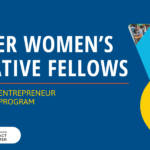Security does not mean immovability. In fact, in management, it must be the opposite. To be a bulwark of security and permanence, business leaders must know when and where they need to change.
In other words, we, our organizations, and our relationships can stick around longer if we learn how to be flexible. Somewhat counterintuitively, to embrace all the change around us while still remaining secure requires a big dose of humility. That’s because humility involves not the absence but the presence of pure confidence.
Mastering flexibility and humility–confidence fosters better leadership and stronger relationships in a host of ways. Here are five of them.
1. Be flex in flux.
Like any species that adapts to survive, our professional survival depends on our ability to adapt to non-neutral actions and reactions. Your competitors could jump the curve overnight — leaving your business model in an uncertain market. In-flux conditions require flexible actions, but with that challenge comes opportunity.
Management research reveals a common factor that limits a leader’s longevity in an organization: A manager’s demise is often linked to futile attempts to hold onto an existing legacy in the guise of maintaining stability. The at-risk leader clings to even recently tried practices, strategies, technologies, regulations, and markets that are all prone to extinction at the moment of their inception.
Leaders who are uncomfortable with being comfortable and constantly keep their radar tuned to a possible need for change are leaders who keep their jobs — and ensure their employees can as well. The best policy is a partnership between adaptability and its twin, resilience.
To be a plateau-resilient leader, think Darwinian. The selection process requires that you constantly adapt to survive. You might have to adapt urgently. You might have to adapt by achieving short-term gains. You might have to adapt by dissecting small improvements, and it may take a long time. But while you hold lightly to goals, hold firmly to intentions. While we adapt to the throes of change, we allow our goals to remain in flux as long as they move us in the direction of our purpose.
2. Be aware of what you do not know.
Being flexible, adaptable, and humble as a leader also requires you to be aware of the gaps in your knowledge.
Ask yourself: What are the things I cannot see? What are the hidden problems? Where are my blindspots? What am I assuming? Logic tells us that answering these questions isn’t intuitive, but it can become a beneficial habit.
The first step? Admit there must be things you do not know. Anyone who’s on the other end of adolescence knows the idea Socrates famously suggested: Wisdom is knowing what you do not know, a concept we now call “conscious ignorance.”
To discover what they don’t know or can’t see, leaders must begin to play Sherlock and start noticing what’s not apparent and questioning what’s assumed. Ed Catmull, president of Disney/Pixar, suggests specifics for how leaders can reasonably detect what they don’t know in his book, “Creativity, Inc.” (2014):
- Leaders should anticipate the next challenge in the pipeline, especially when things are going well.
- They should notice idiosyncrasies that are running underneath the programs and strategies that seem to be neatly situated.
- And they should recognize that different viewpoints are additive, not competitive; a leader needs to hear every angle.
Put another way, leaders must identify and question all assumptions. Catmull is essentially inviting us to invest in some healthy and hopeful skepticism. Be skeptical of success — and particularly its longevity. Be skeptical of your anticipations. Be skeptical of squeaky-clean reports. A leader must be humble enough to know the limits to their perception — and realize they cannot see everything that those under them can see. The hidden costs of assumption can be vast.
3. Be a learner.
Every leader should be a teacher, and every teacher must also be a learner. In “Tools for Titans” (2016), entrepreneur Tim Ferris recommends listening to the behemoth of a man we know as Jocko Willink who, at first encounter, does not seem like the poster child for humility.
Despite his lean 230 pounds, Brazilian jiu-jitsu black belt, 20-year veteran status with decorations in the US Navy, and command of the West Coast Navy SEAL teams training, Commander Willink’s recipe for leadership is indeed humility. As the commander of the commanders, he asked his SEAL trainees to strip from themselves the word “command” in its traditional sense. When he fired leaders from SEAL teams, he says “99.9 percent of the time” it was because they weren’t humble enough. They didn’t listen, open their mind, and see that, maybe, there’s something new to learn.
The best leaders, by contrast, he says, are those who ask, “What did I do wrong?” and then take notes at the answer. From the man who trains these elite paragons of strength comes a lesson — one that is applicable to any field, industry, or organization and more of a warning than a maxim: “Stay humble or get humbled.”
4. Be vulnerable with authority.
Being comfortable with vulnerability is a big but important ask for a leader. It requests a shift in incentives and motives. It also asks for a partnership with trust — trusting others, trusting their feedback — with the eventual reward of resilience. Consider these benefits and actions of flexibility-by-vulnerability:
- It releases tension, and thereby energy: Ask a colleague to discuss why the two of you haven’t been working well together.
- It secures freedom and safety: Make sure team members feel they’re free and safe to offer new, unorthodox ideas.
- It clarifies understanding and being understood: Be willing to be the only team member in the meeting who raises her hand to ask a question in order to understand something.
- It creates connection: Be the one who says “I really appreciate you” first.
- It allows you to give others your full attention: Be the boss who invites employees to give her performance reviews.
Vulnerability is the first step toward innovation. A Harvard Business School study conducted by Amy Edmondson in 2001 determined that organizations and the teams within them work much more productively and creatively if the members know they can discuss mistakes and problems with one another. This proves what common sense tells us in theory, but it’s uncomfortable in practice.
Studies like these help us to do what University of Houston Graduate College of Social Work professor Brené Brown calls “lean in to the discomfort” of vulnerability. She and other behavioral scientists seem to show results that are more than anti-Machiavellian: they’re strikingly up-trending. A leader asking for feedback changes the trajectory toward progress by inviting her team members to become leaders, thus creating collective leadership.
Studies conducted in the past five years by Sonia Ospina, professor of public management at New York University, have determined that this multiplies progress. It multiplies influence. And in flexible leadership, influence outweighs, outperforms, and outplays authority. Political and corporate theory over the past century has proven that collective leadership is usually what changes policy and instigates innovation. The more stakeholders, the more stakes. The more stakes, the more stable and longer-lasting the organization will be.
5. Be uncomfortable, stay a leader.
A CEO who asks for company-wide written feedback, and subsequently reads every word of it, will admit that the exercise is uncomfortable. Many who have offered themselves up to this kind of flexibility attest that flipping to each new feedback form is like peeling off a Band-Aid. However, the CEO who returns to employees at an all-staff meeting and reports on how he or she intends to implement their suggestions is the CEO who is ready to stay the CEO. Such a leader is refined by the feedback fire and builds the rock-muscled flexibility required to cultivate an organization.
Sometimes you won’t have to ask for feedback — your employees will simply offer it, and it may not always be constructive. Use it anyway. Make it the spark that ignites you.
Alexis Ohanian, co-founder of Reddit and one of the world’s most electric startup accelerators, came under unwarranted criticism that he humbly used to jumpstart his business energy. In the nascent days of Reddit, an executive of a global tech giant denounced Ohanian with that old favorite, “You are a rounding error.” After that meeting, he put a sign reading “you are a rounding error” on the wall at Reddit’s office as reinforcement of what to overcome and the progress to be made. Reddit is now a top-50 website.
Know your deficits, your challenges, and your oppositions, and in the process of negotiating with/through/over them, wear them like a T-shirt.
The bottom line
In life and business, we must stiffen that upper lip and answer the following questions: How would you disrupt yourself? In what way are you avoiding vulnerability? If you asked them, how would your employees disrupt the organization? How are you complicit in creating the conditions you say you don’t want? For whose help could you ask to improve these conditions?
If you are flexible enough find answers to these questions, you are well on your way to surviving managerial natural selection — and thriving in the process.




